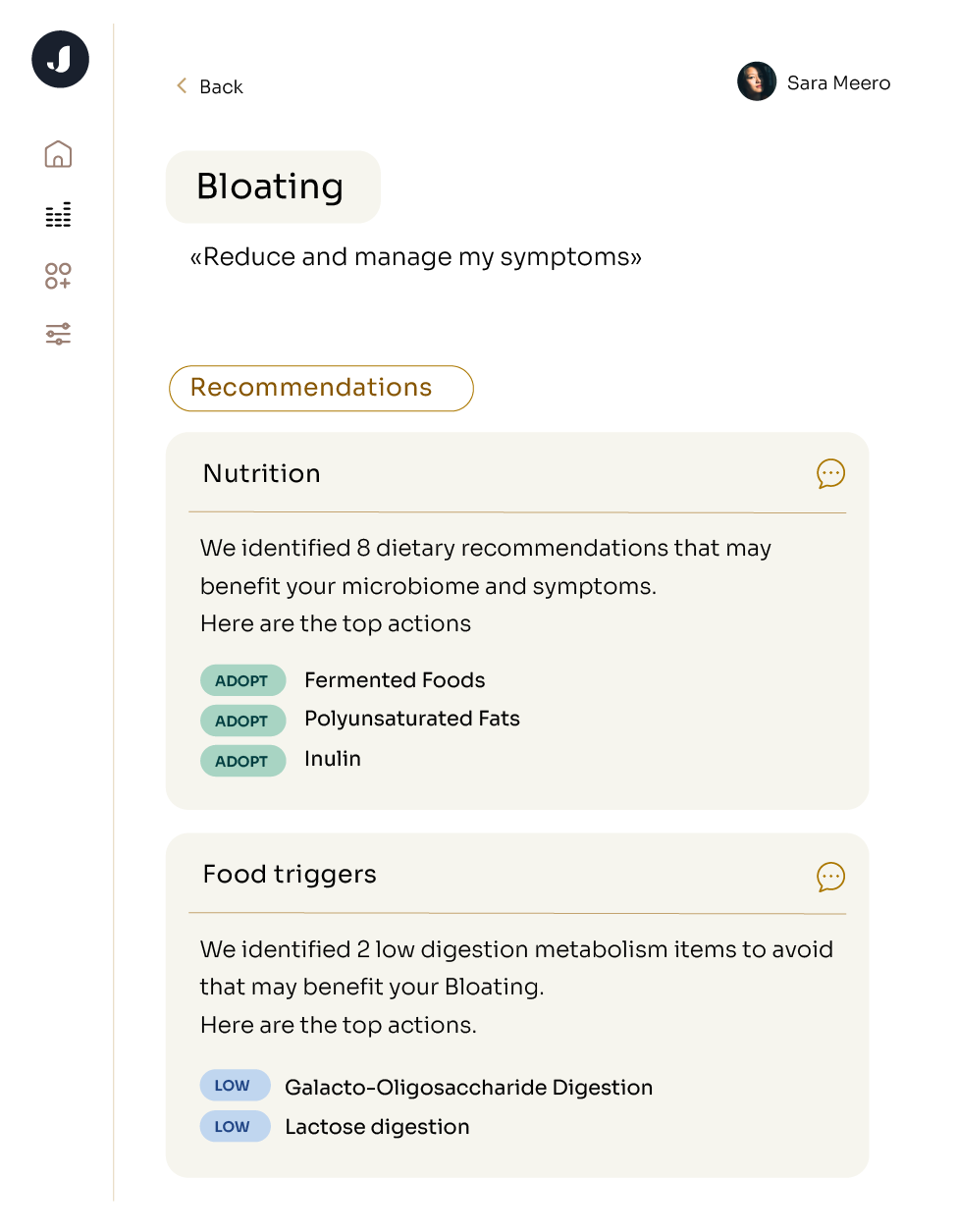What happens to our microbiome as we age?
Like people, some guts age more gracefully than others. Researchers found that healthy aging patterns in the gut are associated with a reduction in the presence of core genera of gut bacteria, particularly Bacteroides, as well as an increase in uniqueness of the gut microbiome. Having a high dominance of Bacteroides in the gut as one ages, or having a less diverse community of gut microbes, is linked to a decreased chance of survival in a four-year follow-up period.
The association between gut microbiome diversity and health was primarily linked to lipid markers. Specifically, individuals with more diverse gut microbiomes tended to have healthier metabolic profiles, lower levels of low-density lipoprotein (LDL) cholesterol, higher levels of vitamin D and lower levels of triglycerides, which are important indicators of overall health.
On the other hand, individuals from this same study who were in poorer health displayed a different pattern in the aging of their gut microbiome. This pattern was marked by a decrease in the abundance of specific microbial genera. Notably, there was a decline in both the Lachnoclostridium and the Ruminococaceae family. In people with Alzheimer’s disease, both these genera have been shown to be decreased compared to healthy persons, which may be linked to a chronic immune response.
These findings underscore that the composition and changes in the gut microbiome are closely linked to an individual's health status and aging trajectory. However, current research debates whether age-related conditions are causing changes in the gut microbiome, or if changes in the gut microbiome are contributing to these conditions.
How the microbiome affects our immune system and overall health
Our microbiome plays a vital role in our immune system and overall health as we age. The microorganisms in our body help to support our immune system, defending us against harmful pathogens, age-related inflammation and maintain our overall health.
Indeed, recent studies have shed light on the link between inflammation and aging-related complications, including the development of lung cancer. Yet anti-inflammatory bacteria in the gut may play a role in countering these changes. A study found that Akkermansia and Christensenellaceae, two bacteria with well-established anti-inflammatory properties, were found in higher abundances in the microbiomes of healthy older adults.
Both in experiments with animals and in studies involving people, it has been consistently observed that eating more dietary fiber has a positive impact on how our immune system works. This further emphasizes how our microbiome’s bacteria, based on what they produce in our guts, can influence our immune system. One way this works is through short-chain fatty acids (SCFAs), which are produced when the bacteria in our gut break down fiber. Such bacteria include Akkermansia muciniphila, Bacteroides, Roseburia inulinivorans and Faecalibacterium prausnitzii. These SCFAs not only affect the gut but can also have positive anti-inflammatory effects throughout our body.
The link between gut health and brain health in aging
Similarly, as our brains grow older, they experience heightened levels of inflammation. Aging brings about changes in the signalling pathways between the gut and the brain, marked by a decline in SCFAs and a compromised intestinal barrier, ultimately leading to increased inflammation.
While limited by small sample sizes, isolated case reports have fascinatingly reported how fecal microbiota transplantation (the act of transplanting fecal matter from a healthy donor into the gastrointestinal tract of a recipient) markedly improved cognitive function in two individuals diagnosed with Alzheimer's disease who received FMT as part of their treatment for C. difficile infections. Such reports suggest that a better understanding of the microbiome, and ability to engineer the microbiome to a desired state, may allow us to significantly improve cognitive function in people with Alzheimer’s disease in the future.
Factors that can disrupt the microbiome and lead to negative effects on aging
As we age, we may experience increased frailty, take more medications, undergo surgeries, reduce our physical activity, and modify our diet quality—all of which can further influence the gut microbiome. There are several factors that can change our microbiome, potentially leading to negative effects on aging. One of the main culprits is the overuse of antibiotics, which can wipe out both harmful and beneficial bacteria in our bodies. Additionally, a poor diet high in processed foods and sugars can disrupt the diversity of our microbiome. Chronic stress and lack of sleep can also have a detrimental impact on our microbiome. Understanding and addressing these factors is crucial in maintaining a healthy microbiome and promoting healthy aging.
Strategies for maintaining a healthy microbiome as we age
To maintain a healthy microbiome as we age, there are several strategies we can implement. Firstly, focusing on a balanced diet rich in fiber and whole foods can promote a diverse microbial community. Incorporating fermented foods, like yogurt or sauerkraut, can also introduce beneficial microbes. Avoiding unnecessary antibiotic use and prioritizing regular exercise and sufficient sleep can further contribute to a thriving microbiome and promote healthy aging.
While research is ongoing regarding the benefits of probiotic treatment, it must be appreciated that there is no one-size-fits-all here. However, there is evidence that supplementing with Bifidobacterium probiotics can improve immune system health and alleviate age-related constipation. While the research concerning the use of probiotics to improve cognitive issues in older adults is still emerging, a study among older adults with mild cognitive dysfunction found that supplementation with Bifidobacterium breve for 24 weeks helped suppress the development or worsening of brain atrophy, implying that this intervention may prevent worsening cognitive decline.
In the realm of microbiome research, there is a growing sense of optimism and excitement about the possibilities it holds for supporting healthy aging. With ongoing research and innovative developments, the future looks bright for harnessing the power of the microbiome to support healthy aging.






